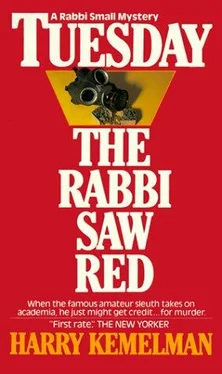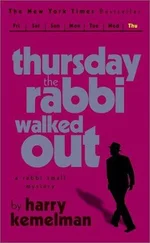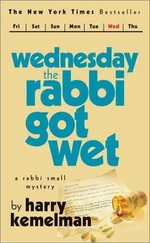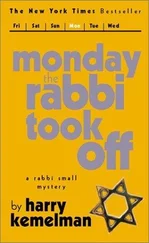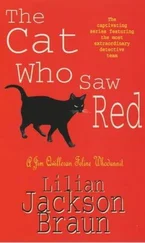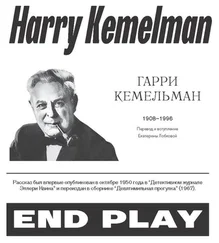Paul Goodman, when asked directly by a friend, smiled and said enigmatically, "That's why they don't allow hearsay evidence in court."
"You mean he had nothing to do with it? But Selzer says—i"I'm not suggesting that," said Goodman. "Mr. Selzer did come to me and ask me to file a motion. But we were planning to do so anyway, as soon as the other boy was apprehended by the police. It all reminds me of something Doc Simons, the pediatrician, was telling me. Most of the time he finds it's the mother he has to treat, not the infant. It's the same way in criminal practice when your client is a minor. It's the parents you have to worry about, and when it's a Jewish parent...."Not surprisingly, those who were not his supporters downplayed the rabbi's contribution. While conceding he had brought it off, they thought the rabbi probably had got a hint from his friend Lanigan, the police chief, who had got it from the Boston police "because all these cops hang together.
" Lanigan met the rabbi a short time later. "Bradford Ames played that one pretty close to the chest," he said. "Even my friend Schroeder was surprised, he thinks the D.A, let the kids off because he figures he can make out a better case against this Ekko than against all five of them."
"They've found him then?" asked the rabbi. "I thought you knew. Yes, it was a bit of luck, according to Schroeder. You need luck, because nowadays you've got a regular underground with these young kids, any city you name, there's places they can go. In the old days, a hood on the run had it rough, the more heat there was, the rougher it was to find sanctuary. But with these kids, it works the other way, and if it's the police he's running from, instead of just his parents, then they're all the more eager to help him. It's become a little easier the last year or so because the Feds have infiltrated a lot of these groups, but still we don't find too many that don't want to be found, they all look alike— with the clothes and the beards and the hair, and the girls wear their hair down covering half their faces. Usually when we catch them it's because they got tired running."
"Did Schroeder say what the young man was charged with?" asked the rabbi. "My guess is that they won't press the felony murder charge; they'll just stick to arson because it's easier to get a conviction, and I wouldn't be surprised if nothing came of that, either, these college cases are tough, there's no push behind them because the public doesn't exert any pressure."
Lanigan shook his head. "You ought to hear the way some of the men on the force complain. To John Q. Public these kids may be mistaken or misguided, but criminals? Never! When a college kid steals, it's so he can give the money to the peace campaign or to promote ecology, they're a bunch of regular little Robin Hoods."
Lanigan ran his hand over his face in exasperation and his tone was bitter. "In the old days a hood stole to buy himself a new car, some flashy clothes. But these kids drive old jalopies and wear beat-up clothes. So that proves they're a bunch of idealists. Right? Wrong! The law enforcement people know that they're apt to have a couple thousand dollars worth of hi-fi stereophonic equipment and that they're supporting a dope habit that may run to a hundred bucks a day."
Lanigan had talked himself into a state of gloomy cynicism. "You mark my words. Rabbi, nothing will come of this case at your college. It wouldn't surprise me if the Commonwealth were to drop the charges because they know they won't get a conviction, and the police are left in the middle, unable to do a thing.
"But the next day, Roger Fine was arrested and charged with the murder of his acting department head. Professor John Hendryx.
"Do you think she'll turn up?" asked Selma Rosencranz as she riffled a deck of cards. Of the four women in her Wednesday afternoon bridge group, she was the only serious card player; the others played to be sociable and it showed in their game. Selma also belonged to another foursome on Mondays and still another group that played Mah Jong Tuesday nights when her husband had his regular poker game.
"I could certainly understand if she didn't." said Annabelle Fisher, this week's hostess, she passed into the kitchen to check the tiny toasted sandwiches she was planning to serve, she was the least skillful player, with frequent lapses in concentration, but whenever the girls met at her house they were sure to get something different to eat— and delicious, she reappeared from the kitchen. "If my husband had just been arrested, believe me. I wouldn't have the heart to play cards."
"But she ought to call." insisted Flossie Bloom, a thin, sallow girl with a small hard mouth who prided herself on being candid and outspoken— "It's the way I am." Her husband was a salesman and not as successful as the husbands of the others. "If Edie doesn't come —"
"Then we won't play," said Selma, she set out the cards for solitaire.
"Do you believe he did it?" asked Flossie. "Absolutely impossible." said Annabelle Fisher. "Harvey says he has it on very good authority that Roger is tied in with all these radical students." said Flossie. "You know, the ones who have been staging all these riots and seizing college buildings and breaking up the furniture."
"Oh, I don't think so." said Annabelle Fisher, who found it impossible to think badly of anyone she knew.
"The eight can go on the nine." said Flossie. "Have you girls heard the talk that's going around about the rabbi— and Roger. I mean?"
"I’ve heard Roger make some cracks about the rabbi." said Selma, deftly shifting a line of cards from one column to another. "And it's certainly understandable after all the grief he gave him and Edie about the wedding."
"Oh, that was something else." said Flossie. "No, the story I heard is that the rabbi got that Selzer boy off by accusing Roger instead."
"That's absolutely ridiculous." said Annabelle.
"I don't find it so ridiculous." said Selma imperturbably, her eyes scanning the cards in front of her. "Everybody is saying the rabbi was the one who got the Selzer kid off, well, how could he know, in advance, that they were going to let the kid off if he didn't know they were going to arrest Roger? And how could he know that unless he had something to do with it? I for one certainly don't think our rabbi has wings. Remember how nasty he was to Edie before the wedding and how at the ceremony butter wouldn't melt in his mouth? You think he wouldn't hold a grudge like anybody else? And if the chance came along— no. I wouldn't be surprised in the least if the story were true. Where'd you hear it. Flossie?"
"Oh, I’ve heard it several places." said Mrs. Bloom vaguely. "It's going around."
Selma saw that she was stymied and scooped up all the cards. "Well, let me tell you girls,” she said, "if that story should rum out to be true. I for one wouldn't take it lying down."
"Why, what would you do?" asked Annabelle.
"I'd think of something, I know that." declared Selma. "And I'd make sure that the rabbi and the whole congregation knew exactly how I felt about it, too."
The doorbell rang.
"That must be Edie now." said Annabelle, she ran to the door and they could hear her say, "We thought you weren't coming."
"Sorry I'm late, girls." said Edie Fine. "I got held up. I went to see Roger."
"How is he?"
"Are they treating him all right?"
"It must’ve been terrible for you."
She sat down at the table with them. "Such a place," she said. "You get such a funny feeling when you go in, and the people, the types you see hanging around." She shook her head in disbelief.
"What happened?" asked Flossie.
"Well, first." said Edie, "you make out this form and hand it in, and then they not only search your handbag, but they make you walk through this place with this metal detector—"
Читать дальше
